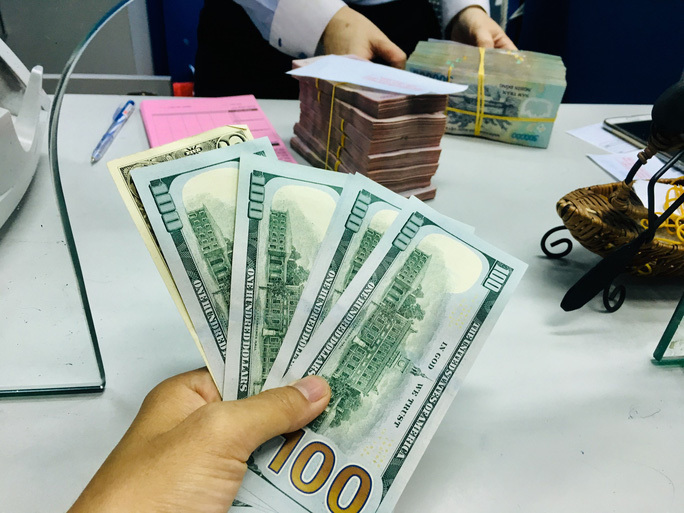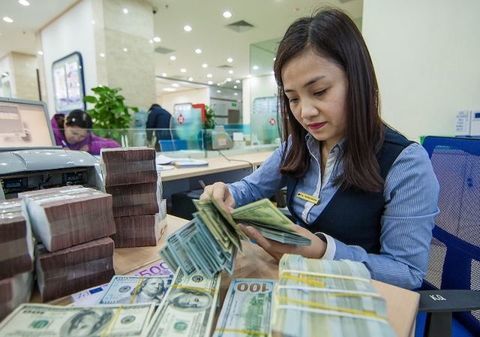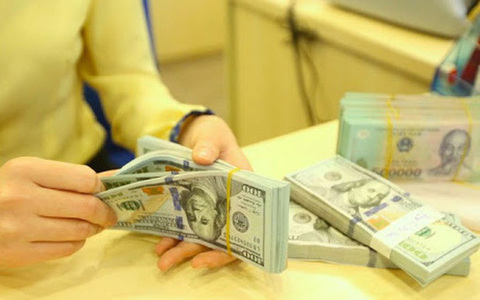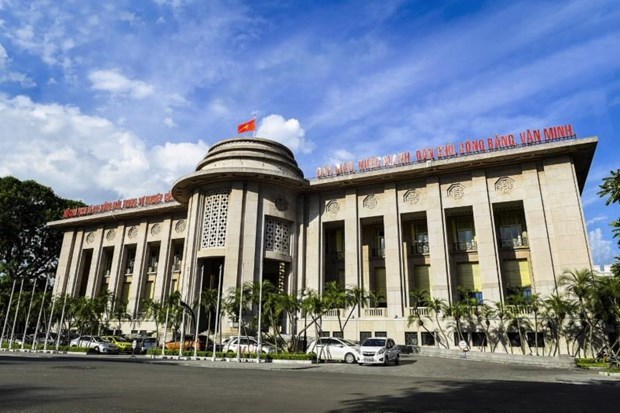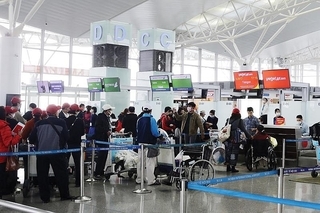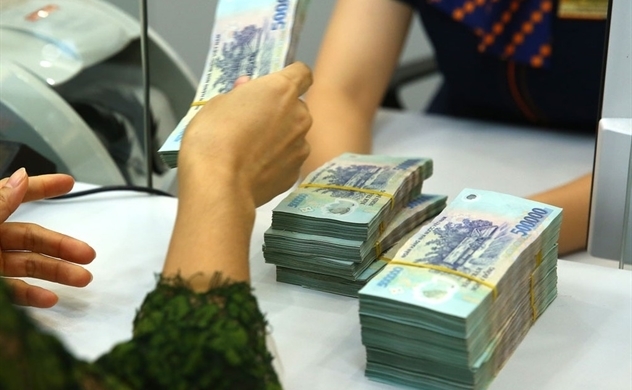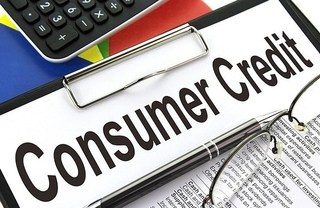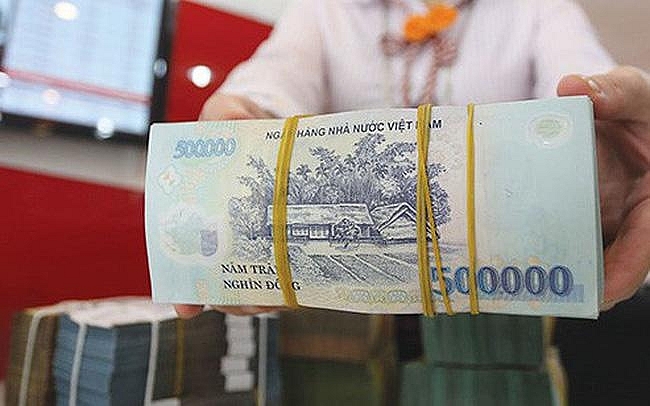- © Copyright of Vietnamnet Global.
- Tel: 024 3772 7988 Fax: (024) 37722734
- Email: evnn@vietnamnet.vn
SBV
Update news SBV
What benefits can Vietnam’s economy expect from an interest rate cut?
 The US FED has launched an unprecedented bailout to help the economy cope with Covid-19. Meanwhile, the State Bank of Vietnam (SBV) has cut the 1-6 month term deposit interest rate ceiling.
The US FED has launched an unprecedented bailout to help the economy cope with Covid-19. Meanwhile, the State Bank of Vietnam (SBV) has cut the 1-6 month term deposit interest rate ceiling.
Foreign currency market eases following central bank’s intervention
 The US dollar on Wednesday depreciated against the Vietnamese dong after the State Bank of Viet Nam (SBV) sold the greenback on the cheap to stabilise the local foreign exchange market.
The US dollar on Wednesday depreciated against the Vietnamese dong after the State Bank of Viet Nam (SBV) sold the greenback on the cheap to stabilise the local foreign exchange market.
Vietnamese currency more stable than other regional peers
 Though the unofficial value of the VND has now fallen about 3 percent against the USD, the rate is still a smaller depreciation than that seen by most of Vietnam’s regional peers and is expected to stabilise around that level.
Though the unofficial value of the VND has now fallen about 3 percent against the USD, the rate is still a smaller depreciation than that seen by most of Vietnam’s regional peers and is expected to stabilise around that level.
VP Bank shifts FE Credit to joint stock company
 The news that VP Bank has decided to shift its subsidiary FE Credit, specializing in consumer lending, to a joint stock company from a limited company has stirred up the public.
The news that VP Bank has decided to shift its subsidiary FE Credit, specializing in consumer lending, to a joint stock company from a limited company has stirred up the public.
VN central bank delays foreign ownership cap in payment services industry
 The State Bank of Vietnam has said it will not cap foreign ownership of companies in the payment services industry in its draft decree to replace Decree No.101.
The State Bank of Vietnam has said it will not cap foreign ownership of companies in the payment services industry in its draft decree to replace Decree No.101.
Central bank cuts interest rates to buffer COVID-19 impact
 The State Bank of Vietnam (SBV) will cut its policy rates starting from March 17 in an attempt to support the economy which has been hurt by the COVID-19 outbreak.
The State Bank of Vietnam (SBV) will cut its policy rates starting from March 17 in an attempt to support the economy which has been hurt by the COVID-19 outbreak.
Vietnam needs corporate credit rating to attract more investors in bonds
 The lack of independent credit rating firms is hindering the development of the corporate bond market.
The lack of independent credit rating firms is hindering the development of the corporate bond market.
Vietnam banks restructure debt maturities worth over US$930 million for customers
 Local lenders are considering waiving interest rates of outstanding loans worth VND185 trillion (US$7.94 billion) for 34,350 customers.
Local lenders are considering waiving interest rates of outstanding loans worth VND185 trillion (US$7.94 billion) for 34,350 customers.
Fed’s rate cut offers opportunity for Vietnam stock market
 With greater liquidity, investors would look for markets deemed safe with less negative impacts from the Covid-19 epidemic.
With greater liquidity, investors would look for markets deemed safe with less negative impacts from the Covid-19 epidemic.
VN banks’ asset quality worsens because of Covid-19
 Experts have warned that the epidemic would lead to increased risk in asset quality.
Experts have warned that the epidemic would lead to increased risk in asset quality.
VN banks offer aids to 44,000 COVID-19 affected customers
 Credit institutions have so far supported more than 44,000 COVID-19 affected customers following directions from the State Bank of Viet Nam (SBV), an official reported on Monday.
Credit institutions have so far supported more than 44,000 COVID-19 affected customers following directions from the State Bank of Viet Nam (SBV), an official reported on Monday.
Prudence important in assessing COVID-19 implications
 Tran Ngoc Tho, member of the National Advisory Council on Financial and Monetary Policies, digs into the implications of coronavirus.
Tran Ngoc Tho, member of the National Advisory Council on Financial and Monetary Policies, digs into the implications of coronavirus.
VN banks still living on credit
 Most banks made fat profits in 2019 and some of them had profit of over tens of trillion of dong. But their profits mostly came from lending.
Most banks made fat profits in 2019 and some of them had profit of over tens of trillion of dong. But their profits mostly came from lending.
How will exchange rate and interest rate be affected amid Covid-19 outbreak?
 SSI Research says the financial market in 2020 will be unpredictable and much less active than the forecasts released at the end of 2019.
SSI Research says the financial market in 2020 will be unpredictable and much less active than the forecasts released at the end of 2019.
Vietnam will not use exchange rate as a tool to boost trade: SBV
 The State Bank of Vietnam (SBV) has many times affirmed that Vietnam has no intention of devaluing the local currency to gain advantages in trade with its partners.
The State Bank of Vietnam (SBV) has many times affirmed that Vietnam has no intention of devaluing the local currency to gain advantages in trade with its partners.
Dollar price rises, investors seek shelter amid coronavirus outbreak
 The official dong/dollar exchange rate announced by SBV reached a peak of VND23,206 per dollar on February 4, an increase of VND36 per dollar compared with the time before Tet.
The official dong/dollar exchange rate announced by SBV reached a peak of VND23,206 per dollar on February 4, an increase of VND36 per dollar compared with the time before Tet.
Vietnam's new consumer finance curbs to challenge business models: Fitch
 Fitch Ratings believes larger, more established finance companies are better-placed to meet the new requirements while newer, smaller companies that concentrate on cash loans may find it harder to shift their business models.
Fitch Ratings believes larger, more established finance companies are better-placed to meet the new requirements while newer, smaller companies that concentrate on cash loans may find it harder to shift their business models.
SBV sets new course to board Industry 4.0 in banking sector
 To keep up with the ever-evolving technology, banks have to be well-positioned to engage with the new wave of digitally empowered customers.
To keep up with the ever-evolving technology, banks have to be well-positioned to engage with the new wave of digitally empowered customers.
With new barrier, real estate credit expected to flow more slowly
 With Circular 22, which took effect on January 1, the State Bank of Vietnam (SBV) has laid a new block to restrict capital flow to the property sector.
With Circular 22, which took effect on January 1, the State Bank of Vietnam (SBV) has laid a new block to restrict capital flow to the property sector.
Total assets of banks in Vietnam swell 9.12% to over US$518 billion
 Total assets of commercial banks under state ownership accounted for 42.7% of the total in the banking sector, followed by joint stock commercial banks with 41.6%.
Total assets of commercial banks under state ownership accounted for 42.7% of the total in the banking sector, followed by joint stock commercial banks with 41.6%.
